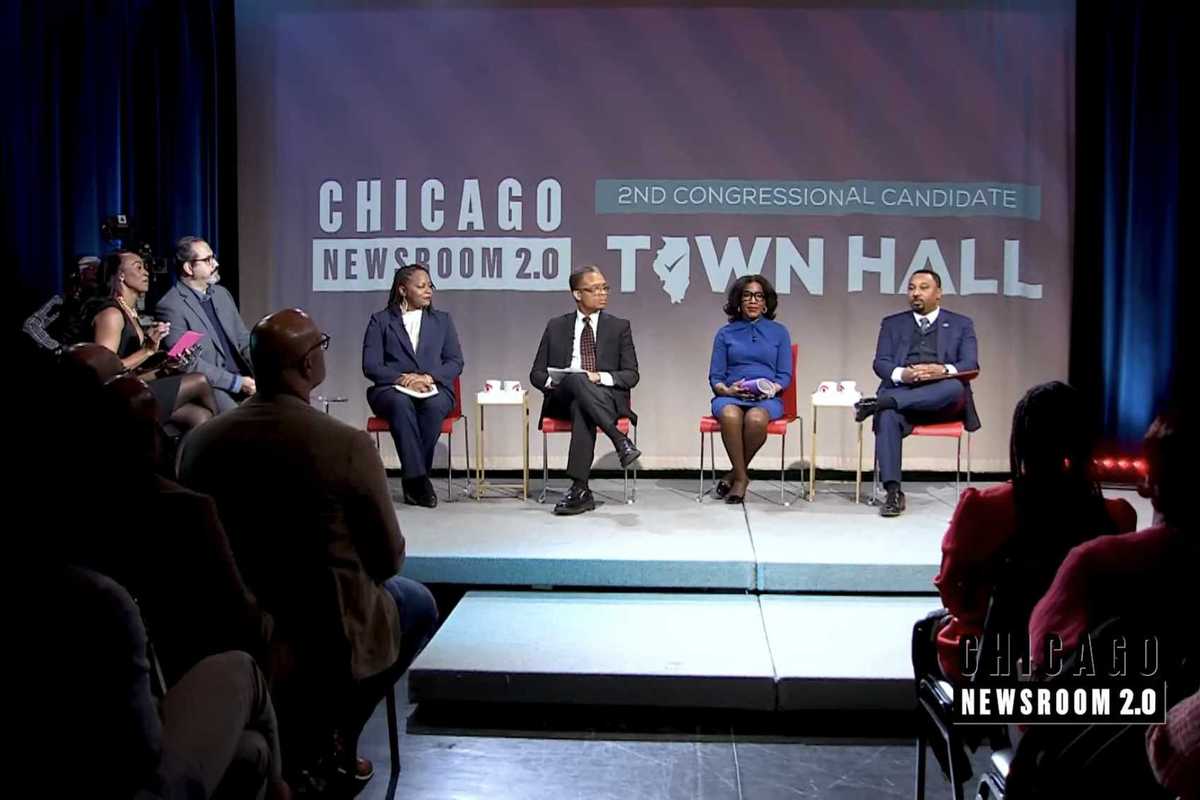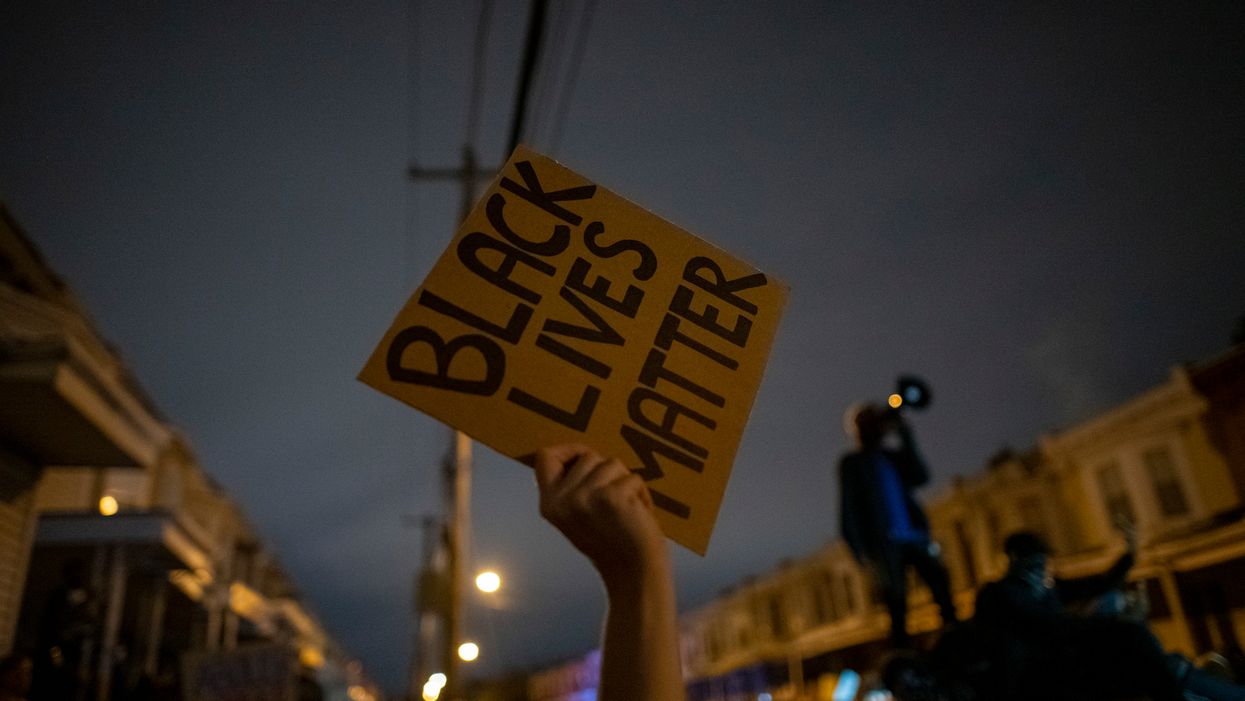Gray is a Baptist minister, secretary of the Missouri Democratic Party and a former state senator in Kansas. Fields is a New York physician and a board member of Open Primaries, which advocates for nonpartisan nominating elections.
While Donald Trump vs. Joe Biden is, of course, the main event in American democracy this week, there are new conversations taking place in Black politics looking beyond this year toward important changes in the relationship between Black empowerment, electoral reform and the Democratic Party.
Since the Gary Convention, the historic 1972 gathering of 8,000 Black leaders in Indiana, the dominant electoral strategy for Black empowerment has been to elect African Americans through the Democratic Party. This strategy has been successful at increasing the number of African American office holders, including the first Black president. But it has been less successful at impacting living conditions and political power for the Black community as a whole.
Diverse African American leaders are opening up conversations about this. It is not yet a full blown debate. The "elect more Black Democrats" approach still dominates. But there is a conversation emerging, fueled by an ascendant Black Lives Matter movement that refuses to be subsumed into partisan politics as usual.
Jessica Byrd, a founder of the Electoral Justice Project at the Movement for Black Lives, put it this way in a New York Times op-ed two months ago: "Parties want our votes while promising little and delivering less. That is because the electoral system was designed as binary; the entry points are two doors expected to fit the voices and policy needs of hundreds of millions of multiracial constituents. Instead, for a new generation of Black activists, success lies in the process of making change — in politics, policies and social practices."
Byrd raises two vitally important points — the failure of the parties to deliver on promises while taking the Black community for granted, and the binary structure of the electoral system that affords our community little choice in the matter. And she hinted at how the Black community is often asked to defend and protect the partisan status quo.
For example, in 2014, when anti-gerrymandering reformers tried to create a citizens commission to draw electoral maps in Illinois, the Democratic legislative leadership in Springfield asked African American and Latino elected officials to be the "first line of defense" against the effort. They were told to assert that reforming gerrymandering would be harmful to black and brown people. But are the interests of our communities best served by protecting the Democratic Party against competition?
In Florida, Democratic Party activists are using a similar playbook. Despite polls showing that 70 percent of Black voters in Florida support open primaries, and that hundreds of thousands of Black independent voters would be enfranchised by ending closed primaries, Democratic Party activists have been campaigning actively against the measure on Tuesday's ballot that would open most of the state's primary elections to all voters — with the top two finishers advancing to November, regardless of their party ID.
Their sole — and quite false — talking point is that if you let everyone participate in primaries, Black candidates will suffer. Even worse, they're using the Black community to persuade white liberals that enfranchising independent voters is anti-Black. That's troublesome.
Many Black Democrats reject this premise. Cori Bush, the Democrat overwhelmingly favored to win election as the new congresswoman for St. Louis, and state Rep. Rasheen Aldredge of St. Louis have fused their community activism with outspoken support for structural reform. Both are advocating for Prop D for Democracy, a referendum that would create a new election system for municipal offices in their city: In the primary, voters would have the ability to approve of as many candidates as they choose — whether Democrat, Republican or independent — and the the top two vote getters would meet again in November. The proposal emerged out of conversations among citizens unhappy with an electoral system that produced politicians, Black and white, without strong majorities behind them.
In Baltimore, nonprofit founder Kim Klacik has raised more than $6 million for her Republican campaign in an overwhelmingly Democratic congressional district. While much of the national press she has garnered is a function of President Trump's involvement in the race — and while neither of us is advocating that African-Americans become Republicans — it would be foolish to dismiss the traction that Klacik is gaining in the city's Black neighborhoods as purely a function of national dynamics.
Baltimore residents have been profoundly neglected by a local machine that faces no competition and little accountability. Too many American cities like theirs have been left to rot, and the excuse given all too often is that it is Republicans alone who are to blame for substandard schools, high unemployment and violent crime.
A new generation of leaders and activists are raising eyebrows at this timeworn excuse. They want progress, not finger pointing.
In this chaotic and challenging moment, let's not lose sight of two important opportunities. The country is responding positively to Black Lives Matter. And emerging Black leaders and activists are demanding new political strategies and new political rules. They're tired of that glass ceiling of structural racism and partisan corruption imposed by the status quo and want to break right through it.
These are significant developments that open new possibilities for qualitative transformation in the lives of Black Americans and the country as a whole. To take full advantage, we must insist that unscrupulous politicians stop pitting the Black agenda against the reform agenda and embrace what our younger generation is building. Let's break right through that glass ceiling together.



















